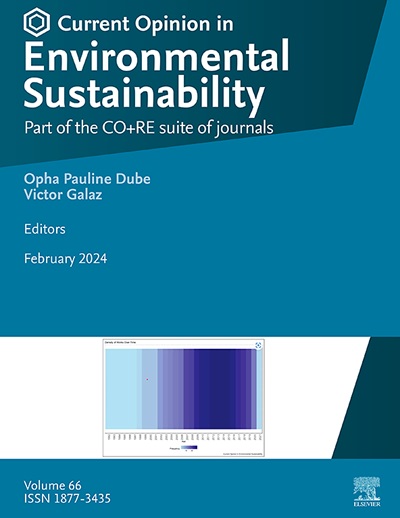公共财政分配不能反映生物多样性的优先次序
IF 6.3
2区 环境科学与生态学
Q1 ENVIRONMENTAL SCIENCES
Current Opinion in Environmental Sustainability
Pub Date : 2025-03-31
DOI:10.1016/j.cosust.2025.101524
引用次数: 0
摘要
缩小生物多样性资金缺口需要增加对自然有利活动的资金,并使自然不利活动变得不那么可行。这将从一开始就减少在养护和保护方面的开支,特别是在事后的恢复工作方面。目前流入自然积极活动的资金因流入破坏自然活动的资金数额大得多而受到破坏。我们使用公开可用的数据集来评估公共资金在自然积极和自然消极部门之间的分配,同时考察了国内和国外的支出。平均而言,高收入国家在自然负支出和自然正支出之间的差距最小,中低收入国家的差距最大。然而,高收入国家在向海外提供资金和援助方面的表现同样糟糕。这里的含义是,只在国家一级优先考虑可持续性,可能会对全球可持续性产生净负面影响。本文章由计算机程序翻译,如有差异,请以英文原文为准。
Public finance allocation does not reflect biodiversity priorities
Closing the biodiversity finance gap requires increasing funding for nature-positive activities and making nature-negative activities less viable. This would reduce the need for expenditure on conservation and protection from the outset, especially for restoration efforts after the fact. Current financial flows to nature-positive activities are undermined by the considerably larger amount of funds flowing to nature-eroding activities. We used publicly available datasets to assess the allocation of public funds between nature-positive and nature-negative sectors, looking at both within-country and beyond-border spending. On average, high-income countries have the lowest gap between nature-negative and nature-positive expenditure, with lower middle- and low-income countries having the widest gap. However, high-income countries performed just as poorly when sending funds overseas as aid. The implication here is that prioritising sustainability only up to the national level will likely have a net negative outcome for global sustainability.
求助全文
通过发布文献求助,成功后即可免费获取论文全文。
去求助
来源期刊

Current Opinion in Environmental Sustainability
ENVIRONMENTAL SCIENCES-ENVIRONMENTAL SCIENCES
CiteScore
13.80
自引率
2.80%
发文量
52
审稿时长
6-12 weeks
期刊介绍:
"Current Opinion in Environmental Sustainability (COSUST)" is a distinguished journal within Elsevier's esteemed scientific publishing portfolio, known for its dedication to high-quality, reproducible research. Launched in 2010, COSUST is a part of the Current Opinion and Research (CO+RE) suite, which is recognized for its editorial excellence and global impact. The journal specializes in peer-reviewed, concise, and timely short reviews that provide a synthesis of recent literature, emerging topics, innovations, and perspectives in the field of environmental sustainability.
 求助内容:
求助内容: 应助结果提醒方式:
应助结果提醒方式:


